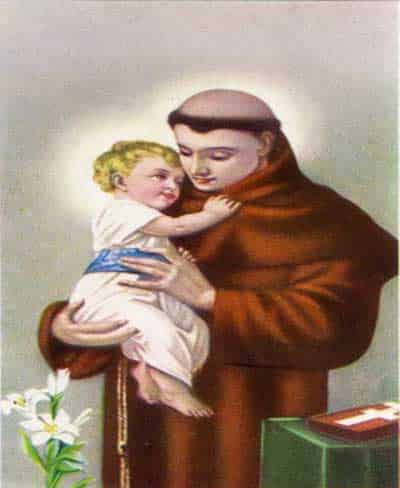Biblical Definition Of ACTS
Biblical Definitions 28-12-2023, 19:51

Biblical Definition Of
Evidence from early Christian records, as well as from the book itself, indicates that Luke wrote the book of Acts. The book was the second of two volumes that Luke wrote, the first being Luke’s Gospel. Luke wrote for a person named Theophilus, with the purpose of giving Theophilus an account of Christianity from the birth of its founder to the arrival of its greatest apostle in Rome (Luke 1:1-4; Acts 1:1-2). Sections of Acts that are written in the first person show that Luke was with Paul on some of Paul’s missionary travels (Acts 16:10-17; 20:5-37; 21:1-17; 27:1-28:31).
The value of Acts
Acts provides a good base for an intelligent understanding of much of the New Testament. Paul wrote his earlier letters during the period covered by Acts, and the present-day reader will have a better understanding of those letters, and other letters of the New Testament, once he is familiar with Acts. The book is also an important document for an understanding of significant developments in world history. Secular historians acknowledge Luke to be an accurate and reliable writer, and the findings of archaeology confirm the exactness of the technical expressions he uses in relation to places and officials (Acts 13:7; 16:12,35; 18:12,16; 19:31,35).
From the title of honour that Luke gives Theophilus, it seems that Theophilus was an official in the Roman government (Luke 1:3; cf. Acts 23:26; 26:25). Whether he was or not, there is no doubt that at the time Luke wrote his Gospel and Acts (in the early AD 60s), the Roman government was paying increasing attention to Christianity. Luke is therefore concerned to point out that Christianity was not in any way rebellious to Roman rule and was not a threat to law and order.
Christians were sometimes involved in civil disturbances, but Luke shows by one example after another that the Christians were not the cause of the trouble. Consistently the Roman authorities acknowledged the Christians to be innocent (Acts 16:37-39; 18:12-16; 19:31,37; 23:29; 25:18; 26:31-32; 28:30-31). In almost every case where there was trouble in connection with the Christians, the Jews were to blame (Acts 9:23,29; 13:50; 14:2,5,19; 17:5; 17:13; 18:12-17; 21:27). Christianity was not an illegal religion according to Roman law. On the contrary it was the legitimate continuation of the religion established by Abraham and developed through Moses, David and the Israelite nation (Acts 2:31-33; 13:26-33; 15:15-18; 26:22-23; 28:23).
This progression from the old Jewish era to the new Christian era came about through Jesus Christ. He was the Messiah of whom the Jewish religion spoke and for whom it had prepared the way (Acts 2:36; 3:18; 9:22; 17:3; 18:5,28). Though he had now physically left the world and returned to his heavenly Father, he was in a sense still in the world. Through the Holy Spirit he indwelt his followers, and through them he continued to work (Acts 1:4-5; 2:33; 3:6,16; 4:30-31; 5:31-32). The spread of the gospel and the growth of the church was the ongoing work of Christ, acting by his Spirit through his followers (Acts 8:29,39; 9:17,31; 10:19,45; 13:2,4; 15:28; 16:6-7).
Summary of contents
Continuing the story from where Luke’s Gospel ended, Acts begins by recording Jesus’ promise of the Holy Spirit, his ascension, and the appointment of an apostle to replace Judas (1:1-26). On the Day of Pentecost, Jesus’ promise was fulfilled when the Christians received the Holy Spirit (2:1-36). That same day three thousand people responded to Peter’s preaching of the gospel and were added to the church (2:37-47). Thousands more were added a few days later (3:1-4:4). This rapid growth brought opposition from the Jewish leaders (4:5-31).
The rejoicing among the Christians was interrupted by God’s severe judgment on two people who deceived the church (4:32-5:11). Nevertheless, the church increased its numbers, though at the same time the Jewish leaders increased their opposition (5:12-42). Until now the Christians had been popular with the common people, but this changed when one of the leading Christians, Stephen, made it clear that Christianity was not simply an improved form of Judaism. The Jews killed him (6:1-7:60) and began a violent program of widespread persecution against the Christians (8:1-3). As a result of the Christians’ being driven from Jerusalem, the gospel spread to Samaria and Caesarea (8:4-40). Meanwhile Saul, the chief persecutor, repented and believed in Jesus (9:1-31).
Peter travelled from Jerusalem down to the Mediterranean coast (9:32-43) and preached the gospel to Gentiles in Caesarea with great success (10:1-48). Back in the Jerusalem church many were uneasy that Gentiles were being welcomed into the fellowship of Jewish Christians without first submitting to the Jewish law (11:1-18). In Antioch in Syria more Gentiles believed and the first Gentile church was formed (11:19-30). But in Jerusalem, Jewish opposition increased. In an effort to satisfy the Jews and avoid further unrest, Herod executed the apostle James and tried unsuccessfully to execute Peter (12:1-25).
Christianity spread further when Paul and Barnabas, with Mark as their assistant, set out from Antioch on a missionary journey to Cyprus and Asia Minor (13:1-14:28). When Jewish legalists tried to force Christians to keep the Jewish law, a meeting in Jerusalem upheld the gospel as Paul preached it (15:1-35). Paul then set out on his second missionary journey, this time taking Silas and Timothy as his partners. They travelled through Asia Minor to northern Greece (15:36-16:40) and then south to Athens (17:1-34). After eighteen months in Corinth they returned to Antioch (18:1-22).
Paul’s third missionary journey took him to Ephesus in Asia Minor, where he stayed three years (18:23-19:41). He spent some months in Greece and, when he had finished his work there, returned to Palestine (20:1-21:14). Upon arrival in Jerusalem, Paul met fierce opposition from Jewish legalists who considered him a rebel. When a riot broke out, Paul had to be rescued by the local Roman guard (21:15- 40). His defence of himself brought further violence (22:1-23:10), with the result that he was sent to Caesarea to be judged by the Roman governor, Felix (23:11-35).
Neither Felix nor his successor, Festus, found Paul guilty, but they left him in prison for more than two years, merely to please the Jews. Paul could tolerate the injustice no longer and appealed to Caesar (24:1-25:12). A visiting expert on Jewish affairs also found Paul innocent, but since Paul had appealed to Caesar, he had to be sent to Rome (25:13-26:32). After an eventful sea voyage, Paul reached Rome (27:1-28:16). As usual, the Jewish leaders rejected his message. The Roman authorities allowed him some freedom, so that he was able to preach the gospel openly and unhindered till his case was heard (28:17- 31).

Christmas Wishes-Gifts under the Christmas tree HD wallpapers Download There are many gifts under the...
Learn more
Matthew 5:48 Bible Quotes HD-Wallpaper Download You, therefore, must be perfect, as your heavenly Father is...
Learn more
Italian Bible Quotes Mobile Wallpaper Proverbs 3:6 Download Proverbs 3:6 Italian Bible Quotes Mobile...
Learn more 0

